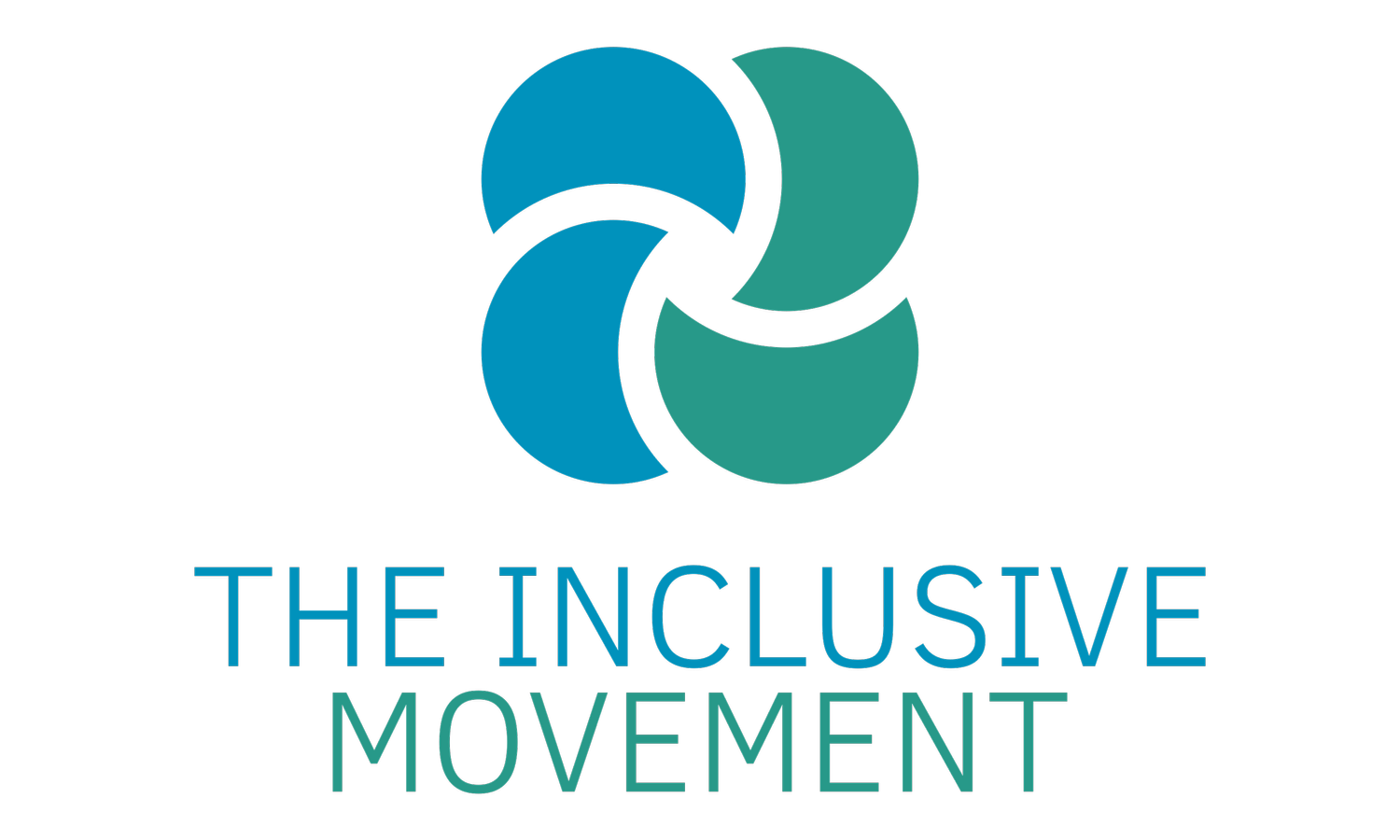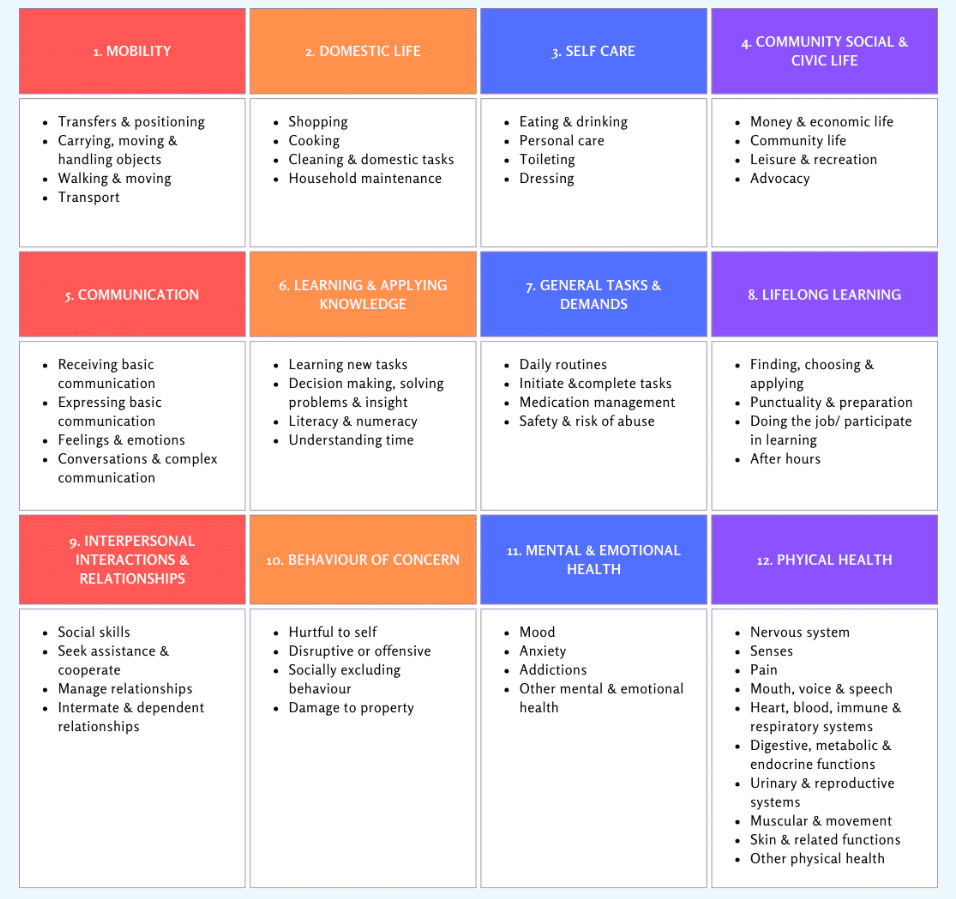NDIS Update: Understanding the I-CAN Assessment
The National Disability Insurance Scheme (NDIS) has recently announced that the I-CAN Assessment (Instrument for the Classification and Assessment of Support Needs) will be its preferred tool for understanding and planning participant support needs.
At The Inclusive Movement, we know changes like this can feel overwhelming.
This update is designed to help you understand what the I-CAN assessment is, how it differs from a Functional Capacity Assessment (FCA), and what this shift may mean for you and your family.
What is the I-CAN Assessment?
The I-CAN is a holistic, person-centred, and strength-based assessment tool designed to look at what a person can do with the right supports, rather than focusing on deficits or limitations
It explores 12 life domains + Sub Domain areas:
Mobility
Domestic Life
Self-Care
Community, Social & Civic Life
Communication
Learning & Applying Knowledge
General Tasks & Demands
Lifelong Learning
Interpersonal Interactions & Relationships
Behaviour of Concern
Mental & Emotional Health
Physical Health
Image Description: Each 12 domains and Subdomains of the I-Can Assessment
Each domain is scored based on both how often support is required (frequency) and the intensity of the support provided (type). Scores range from independent/minor needs through to pervasive support needs
How is the I-CAN Different from a Functional Capacity Assessment (FCA)?
While both tools are used within the NDIS to demonstrate support needs, they have distinct approaches:
-
Focuses on what a person can’t do and where their functioning is limited.
Usually therapist-led and based on direct observation and standardised testing.
Primarily measures skills and functional limitations across ADLs (Activities of Daily Living).
Reports often framed for NDIS evidence of impairment.
-
Focuses on what a person can do, framed positively: “John can do X when Y support is in place.”
Collaborative — draws on insight from the individual, their support network, and existing reports
Considers a broad view of life, including health, behaviours of concern, relationships, and emotional wellbeing
Designed to inform goal planning and suggest additional assessments where needed
In short, the FCA is problem-focused, while the I-CAN is strengths- and goals-focused.
Our Experience with I-CAN Training
As practitioners, we’ve recently completed the I-CAN assessor training and have started using the tool with families. Here’s what we’ve noticed so far:
Strength-based approach: It’s refreshing to see assessments framed around ability. For example, instead of “John cannot prepare a meal,” the I-CAN might note, “John can prepare a meal when given step-by-step prompts.” This is refreshing to see and is in alignment with our Person Centred, Strengths-Based and Neuroaffirming Approach.
Whole-of-person insight: The I-CAN requires detailed knowledge of the individual, their support team, and access to previous reports and medical history. This ensures the assessment is thorough and accurate.
Practical goal planning: Beyond identifying support needs, the I-CAN generates goals and can recommend when additional or further assessments (e.g., OT, psychology, speech) may be helpful.
Detailed scoring: Each of the 12 domains is scored by both frequency (e.g., daily, weekly, continuous) and intensity of support (e.g., minor prompts, extensive supervision, 2:1 support) - we imagine this will heavily guide NDIS planners and their future decision making.
Flexibility and respect: The I-CAN process allows people to skip irrelevant areas, take breaks, and answer questions privately if they wish. While the structure of the I-CAN assessment is flexible, it has been well intentioned to support assessors to start small and build trust first before touching on some of the more personal topics.
What Does This Mean for Families and Participants?
You’ll see a shift in language: Reports may sound more positive and affirming, focusing on abilities with the right support.
Your input is crucial: Because the I-CAN relies on collaboration, family members, support workers, and allied health reports will play a big role in shaping the outcome. Providing as much information ahead of the assessment is important, allowing assessors to preview and formulate focus areas ahead of time.
Stronger goal planning: The I-CAN is not just about proving need; it is also about mapping a pathway towards a participant’s dreams and aspirations
Alignment with rights-based practice: The I-CAN acknowledges medical, behavioural, and mental health needs alongside functional domains, supporting the principle that all people have the right to live the life they want with the right supports.
Moving Forward
At The Inclusive Movement, we welcome this shift. The I-CAN assessment feels more in line with our neuroaffirming, human rights-based approach, where a person is seen as more than a list of deficits.
While it is still unclear how and by who the new assessments will be completed, We’ll continue to monitor and keep our community updated.
What we do know so far is that The I-CAN training is available to following people, However, due to unprecedented interest and enrolments in the I-CAN v6 Tool, new I-CAN v6 Assessor Training enrolments are temporarily closed:
-Allied health clinicians with a tertiary qualification, such as:
Occupational Therapist
Physiotherapist
Speech Pathologist
Social Worker
Dietitian
Psychologist
Exercise Physiologist
Rehabilitation Counsellor
Counsellor
Psychotherapist
Developmental Educators (confirmed by the DEAI 01/10/2025)
-Registered nurses (RN)
-Enrolled nurses (EN)
-Clinicians with an Education degree
-NDIS Behaviour Support Practitioner
Next Steps
It is expected that the use of the I-CAN assessments will roll out in 2026. If you have an upcoming NDIS plan review, ask your planner whether the I-CAN will be used.
Gather any recent reports and medical information in advance — this can shorten the interview process.
Think about your goals and aspirations. The I-CAN is designed to bring these to the forefront.
For further information or support, please feel free to contact us


